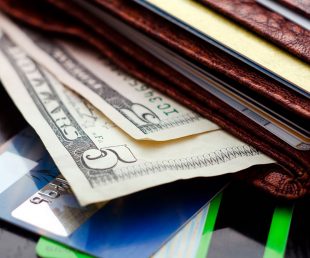People approaching their late 20s often begin to panic as they move closer to the next milestone in their life. There’s something nerve-wracking about the big 30 – perhaps because it means that you can no longer blame your bad decisions on being “too young.”
The chances are that by the time you’ve reached your 30s, you’ll have a few years of work under your belt, and hopefully, you’ve got the partying bug out of your system. Now’s the time you’ll be thinking about settling down and becoming more financially independent.
So, how do you start making this all-important transformation? The following tips will help you to prepare for some more sensible spending habits.
UPGRADE YOUR SAVINGS STRATEGY
With a little luck, you will have started thinking about saving accounts and future financial goals long before you turned 30. Most people in their 20s quickly develop a dream to own their own house and start making real investments in the future. With that in mind, there’s a chance that you’ve already started putting cash away in a savings account.
When you hit your 30s, be prepared to upgrade your savings habits, as long as it’s not going to stop you from paying the bills you’re responsible for each month. Think about whether you can reduce the amount you spend on drinks with your friends each week by $10 and put that into savings instead. Every little bit helps.
CONSIDER BUYING INSTEAD OF RENTING
Buying a home seems like a big commitment at first, particularly when you’ve got saving for a deposit to worry about. However, if you can afford to purchase a property and get a mortgage instead of paying rent, then you’ll be better off in the long term. The quicker you can get a foot on the property ladder, the easier it will be to start building your worth for the future.
When you rent a property, you simply send your money to a landlord every month, and you don’t get anything back for it in the long-term. When you buy a property, you’re investing in something valuable that you can potentially sell or remortgage at a later date.
COMPARE EVERY LOAN
Loans are a common part of life for people of all ages. The chances are that you’ve already encountered the ins and outs of lending with things like personal loans, car loans, and even student loans up until now. When you hit your thirties, the need for extra financial assistance doesn’t stop. However, you can make sure that you’re getting the best deal on your lending.
Go online and compare each loan option available to you in depth before you sign anything. This way you can make sure that you’re getting the best APR rate. The less you have to pay on interest each month, the more money you’ll have for yourself.
LOOK FOR SIGNS THAT YOU’RE WASTING CASH
A lot of people assume that they’re as careful as they can be with their finances until they look at their bank statement in closer detail and realize how much they waste each month on things that they don’t really want or need. For instance, do you have a gym membership card in your wallet that you pay for every month but never use? Now could be the perfect time to get rid of that membership and commit to a free training program instead. For instance, you could try cycling to work, or going for a run every weekend.
On the other hand, you may be paying more than necessary for things like gas and electricity. Make sure you compare your options like you did with your loan to ensure that you’re getting the best offer from your providers.
TRACK YOUR SPENDING
While tracking your spending and keeping an eye on every penny might not sound like much fun, it’s one of the best things you can do to improve your financial situation in your 30s. When you track your spending, it’s easier to see where you can cut down on things like extra lattes on a morning and expensive lunches.
The good news is that in today’s digital world, tracking your spending is a lot easier than it used to be. You can even download secure apps to your phone that give you details on every penny that comes in and out of your bank account, so you never make an uninformed purchasing decision again!


